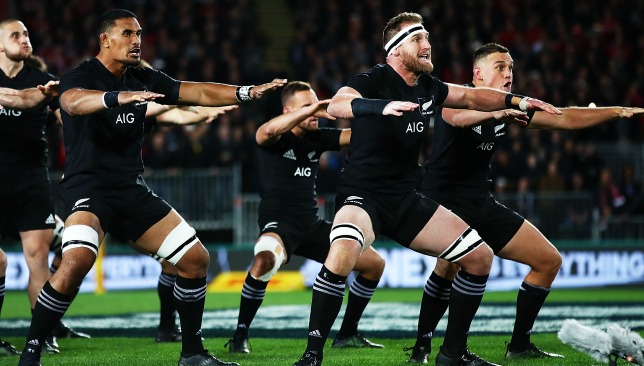
On the biggest stages the greatest teams deliver – and there is no greater team than the All Blacks.
In the most eagerly anticipated Test since the 2015 Rugby World Cup final the All Blacks delivered as only they can, decimating the British & Irish Lions – the cream of the crop of England, Ireland, Scotland and Wales.
When the full-time siren sounded the score was 30-8, and although the Lions brought it back to 30-15, the score line flattered the tourists. To put it in context, Clive Woodward’s oft-derided 2005 Lions lost their first Test 21-3.
But these 2017 Lions were meant to have a chance of victory. They didn’t – of course – and we shouldn’t really be surprised.
No team in history has dominated their sport to the extent the All Blacks have dominated international rugby over the last decade.
Since World Rugby introduced their rankings in 2004 the All Blacks have consistently held the No1 spot. Since 2010 they have held it without interruption.
Think about it – that’s over 400 weeks consecutively at the top. Tiger Woods in his prime lasted 281 straight weeks at the top, and Roger Federer only 237. The longest the Brazilian football team ever managed was in the mid-300s.
During this period of total dominance the All Blacks have won back-to-back Rugby World Cups, the first team to ever do that, been crowned World Rugby Team of the Year seven years in a row and won every trophy that is possible to win.
Since 1903 the All Blacks win record is 78.97 per cent from over 550 Tests played but in the last four years it rises to 91.66 per cent with just three losses in 42 matches.
But what is it that makes the All Blacks so good? Certainly they have had some of the greatest players to ever play the game with legends like Richie McCaw and Dan Carter pivotal to their success.
Respect. Congrats to the #AllBlacks #LionsNZ2017 #NZLvBIL pic.twitter.com/rZin6Tj3Zo
— All Blacks (@AllBlacks) June 24, 2017
And yes, there is a winning culture best summed up by the mysterious mental skills coach, Gilbert Enoka, who has worked with the team since 2001.
A former international volleyball player turned PE teacher, he is described by Steve Hansen as the “glue” who holds the All Blacks together. Pretty big call for such a successful team.
Enoka is credited with helping the All Blacks overcome the “choker” tag earned at the 1999 and 2007 World Cups and turning them into an invincible unit.
“My role is equipping our men with the tools to be able to perform under pressure — giving them the mental skills they need to be strong,” says Enoka.
Captain Kieran Read says the All Blacks welcome pressure. “There’s always pressure on us,” he admitted. “We don’t mind pressure.
“We’ll go out there and expect to win, as probably everyone in New Zealand is expecting us to win.”
I’ve been lucky enough to spend some time around the All Blacks in the past and I would say three things set them apart from other great sporting teams: skills, intensity and discipline.
They can’t totally take credit for the skills as that is bred into all New Zealand rugby players from a very young age and honed to a fine art in the provincial competitions and Super Rugby.
Intensity doesn’t only mean during a game – it starts at training – and the All Blacks follow the old adage: “train the way you play.”
First Test in the bag! 👊🏻⚫️🏉🦁#LionsNZ2017 #NZLvBIL pic.twitter.com/RIhkPw4npx
— All Blacks (@AllBlacks) June 24, 2017
The All Blacks don’t open their training sessions anymore, except for a ten-minute stroll around for a photo op, but when they did what was striking was the intensity: the physicality, the competitiveness, the skills executed under pressure.
Their training sessions were tougher than most Tests.
Discipline is on and off the field. Being around the All Blacks camp you get the sense it is run with military precision – from the flawless Adidas team kit to the minute-by-minute daily itineraries to the highly restricted media access.
And that goes for everyone – when Hansen arrived a few minutes late for a team meeting recently he was scolded by a senior member of the playing group.
“In our cornerstone philosophies, the team towers above the individual,” says Enoka. “You will never succeed on your own but you will be successful if the team functions well.”
The All Blacks are living proof of that.